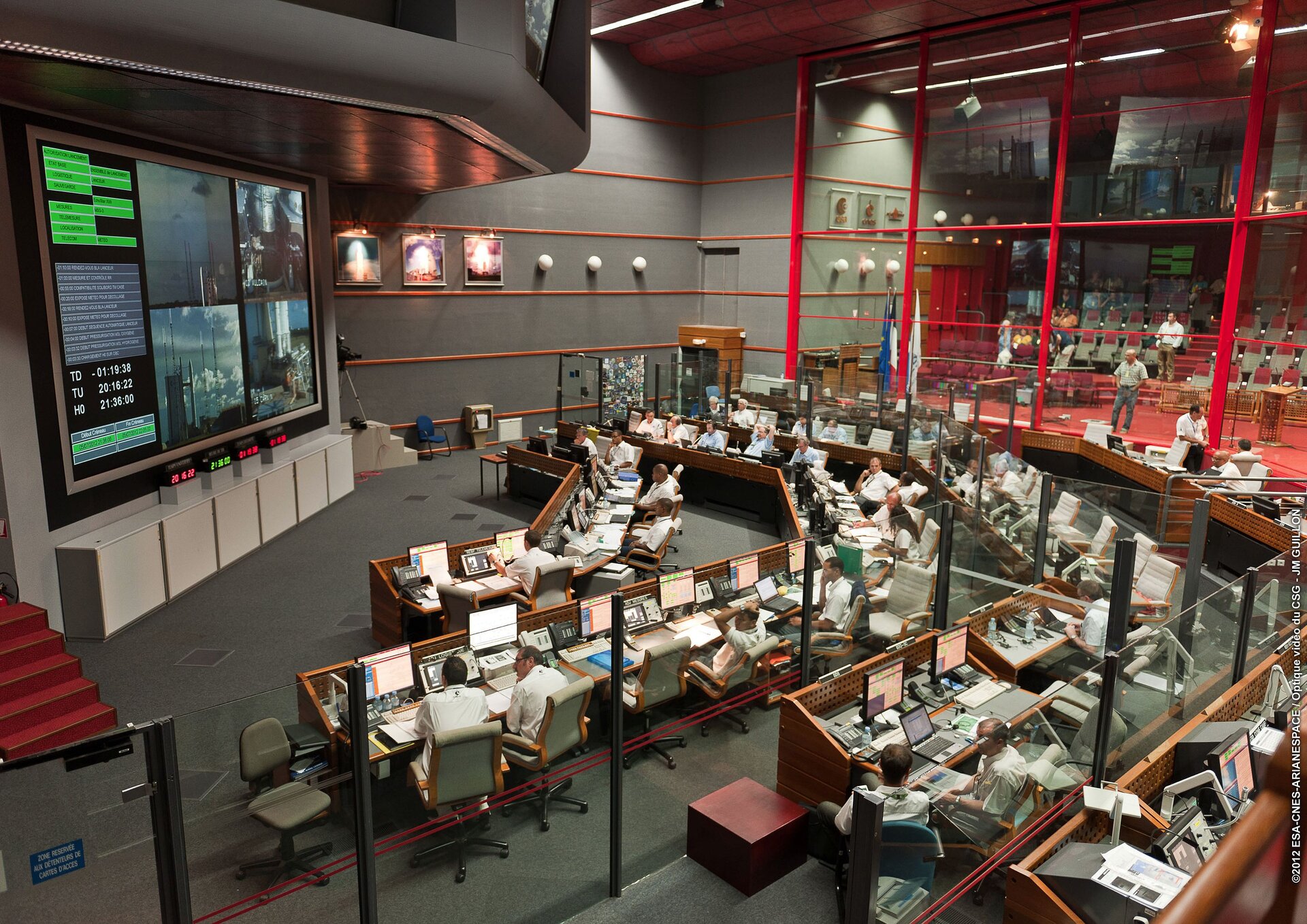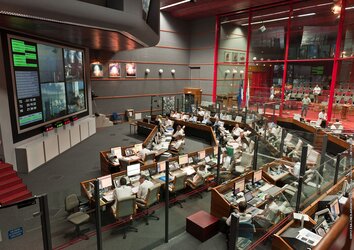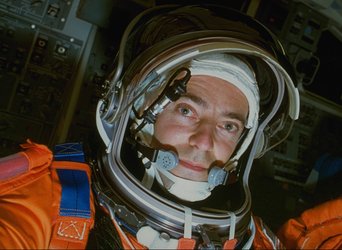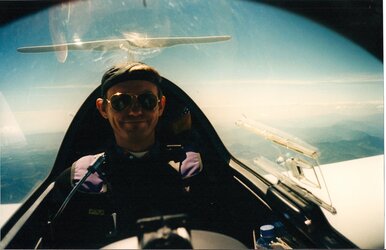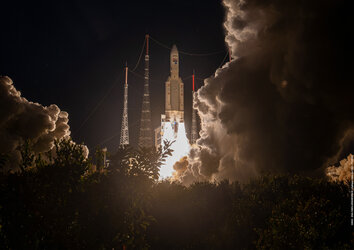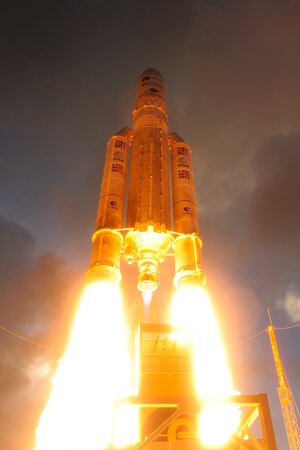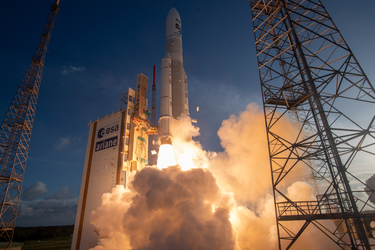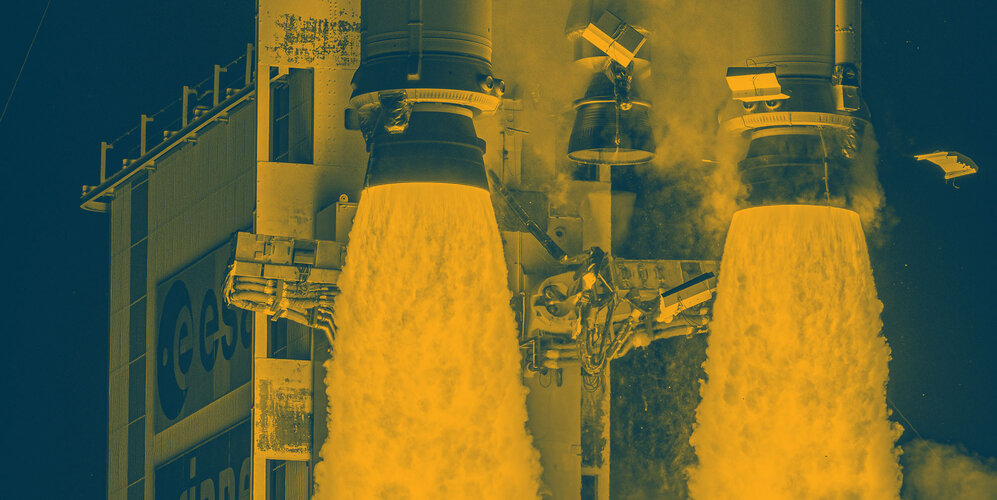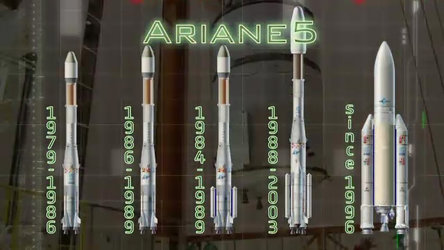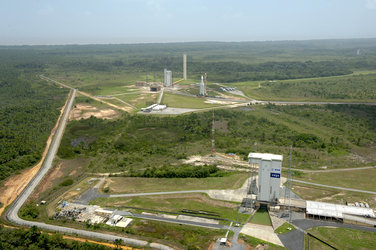Portraits of Ariane 5: No.4, Camilla MacMillan-Hughes
The Ariane 5 launcher said a graceful goodbye in July after nearly three decades of loyal service. Many people contributed to its success over the years and, in this series of conversations, some have shared their personal and professional experiences with Annia Domènech.
For the fourth in the series, we talked with Camilla MacMillan-Hughes, former web editor for ESA’s Space Transportation directorate.
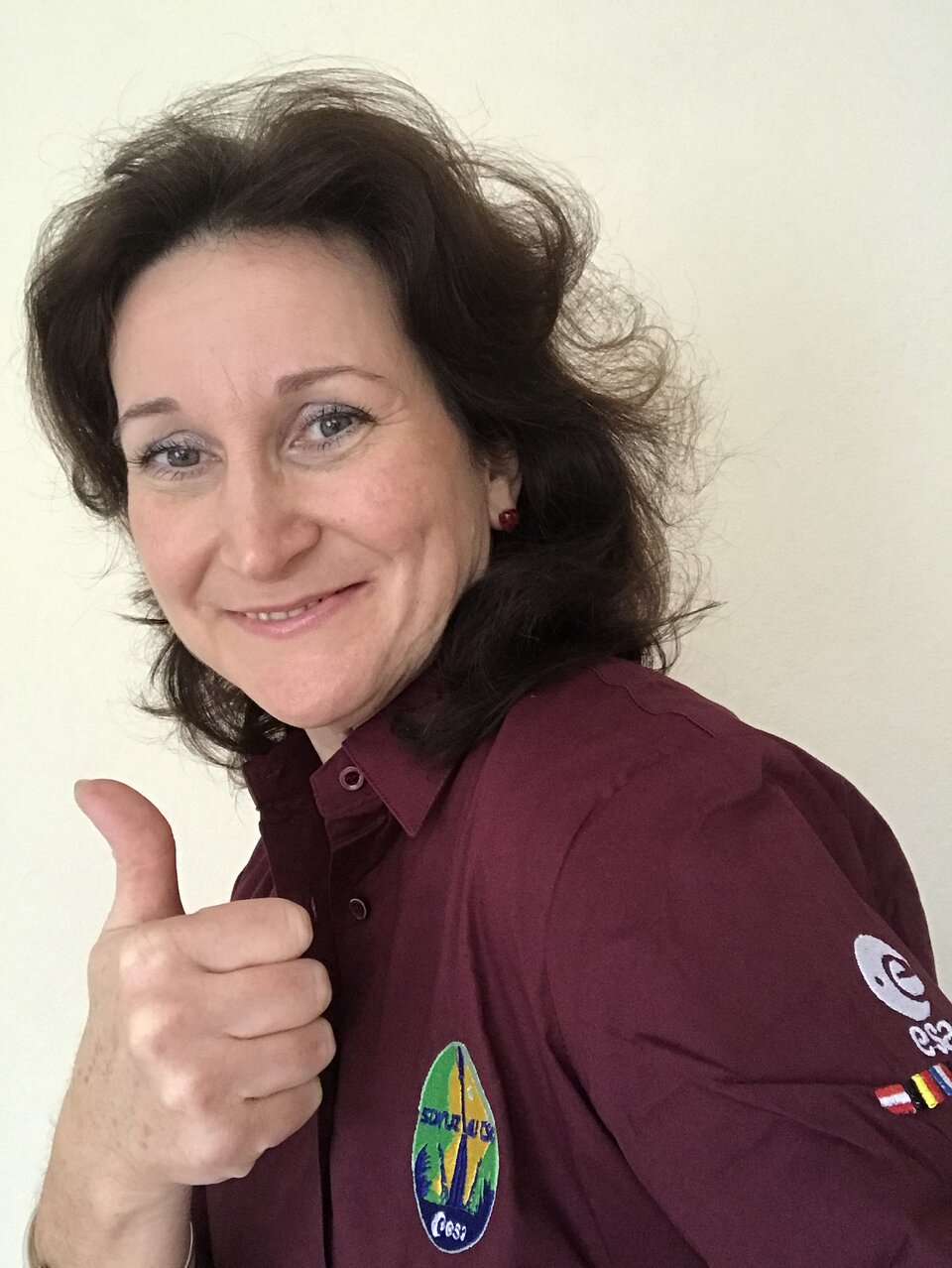
"I was the editor for ESA’s Space Transportation (formerly ‘Launchers’) directorate working part time for nine years until March 2023, based at ESA ESTEC in the Netherlands.
“One of my tasks was to write news articles and produce other media for the ESA web portal about Ariane 5, its launches and technical developments. It’s important to get the level of technical detail right, to appeal to rocket enthusiasts as well as the general public, and to make it interesting and understandable by an international audience.
“I previously worked for the company that developed the software and user interface for the Jupiter Control Centre display system on the wall and consoles. As the technical writer there, I wrote the French user manuals for the system administrator and operators.
"Who doesn’t like watching a rocket launch? Rockets are magnificent and cool but everything has to be perfect before the ‘GO’ for launch is given. I liked to see the teams in the control room, their anticipation, concentration, then their relief and joy. Given Ariane 5’s stunning reliability it was easy to forget how much of an accomplishment every successful launch is – and how much it matters to these people.
"Covering launches was always very exciting and a little nerve-racking too. When the Arianespace broadcast started I would have that feeling: the launch is beginning! ESA mission launches involved a whole team. There’s a great sense of camaraderie and belonging.
"But for most commercial launches, occurring in the early hours of the morning European time, there would only be a couple of us from Communications online. I’m a night owl so was happy to be covering these launches and publishing from home. My cat would love to join me and his paws often reached out onto my keyboard!
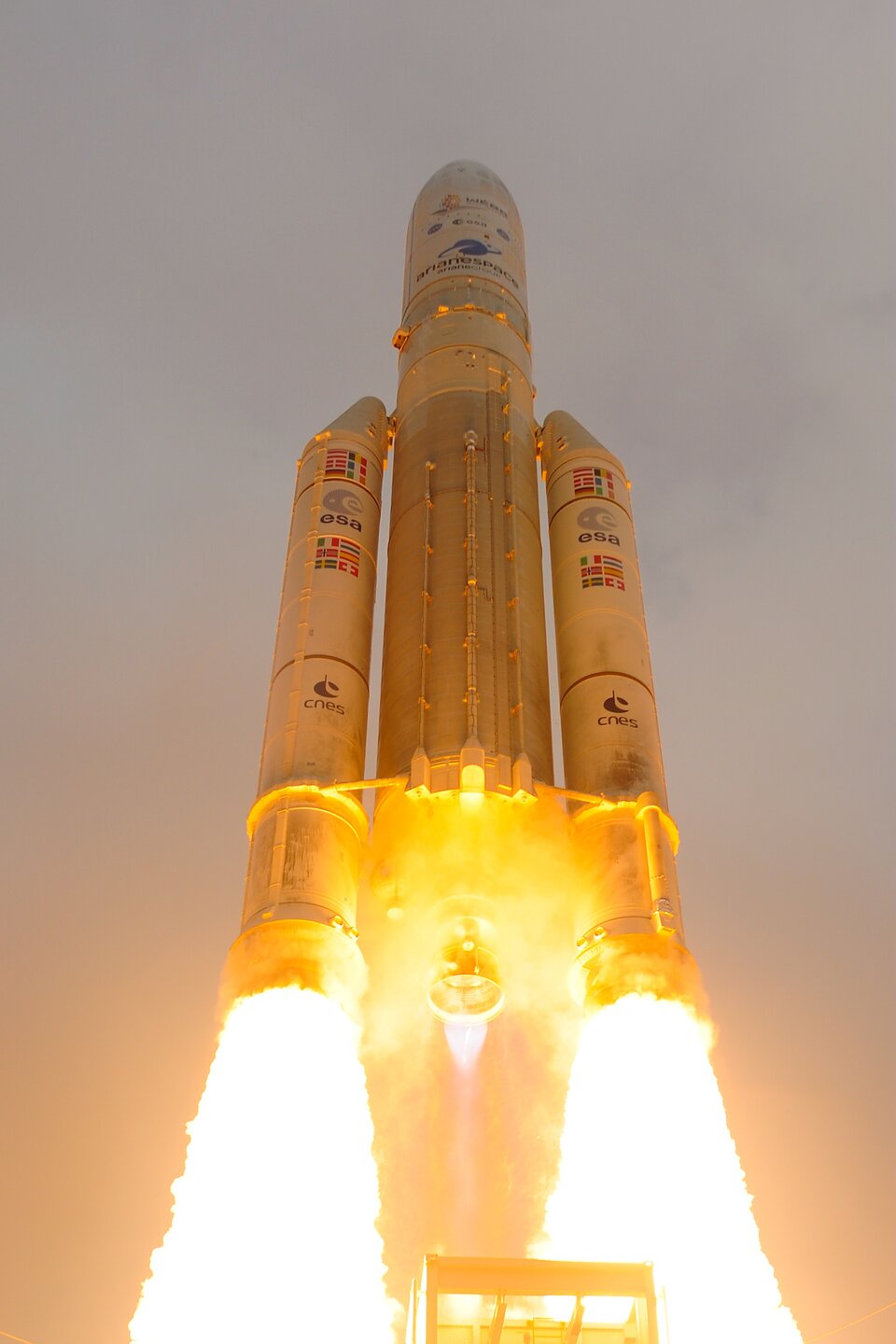
"It was exhilarating – the countdown, the roar of the Vulcain engine, and liftoff! After Arianespace announced launch success, I would publish my prepared ESA article and update background pages before going to bed.
"In the early days, the picture at the top of the article would be my screenshot taken at exactly eight seconds after the liftoff announcement as Ariane 5 left the ground (it was the best view in the frame of the TV broadcast and sometimes this could be tricky to capture as network technology was not what it is now).
"Nowadays Europe’s Spaceport sends out beautiful high-resolution photos soon after liftoff. Of course, the best launches to watch were during the daytime, when there was a clear view and blue skies.
"One of the most intense launch campaigns for me was for the NASA/ESA/CSA James Webb Space Telescope, which lifted off on Christmas Day in 2021. In the month leading up to launch, I published something every day about Ariane 5 and spaceport activities. What crowned it all was the perfect launch injection which saved fuel which will extend Webb’s expected lifetime.
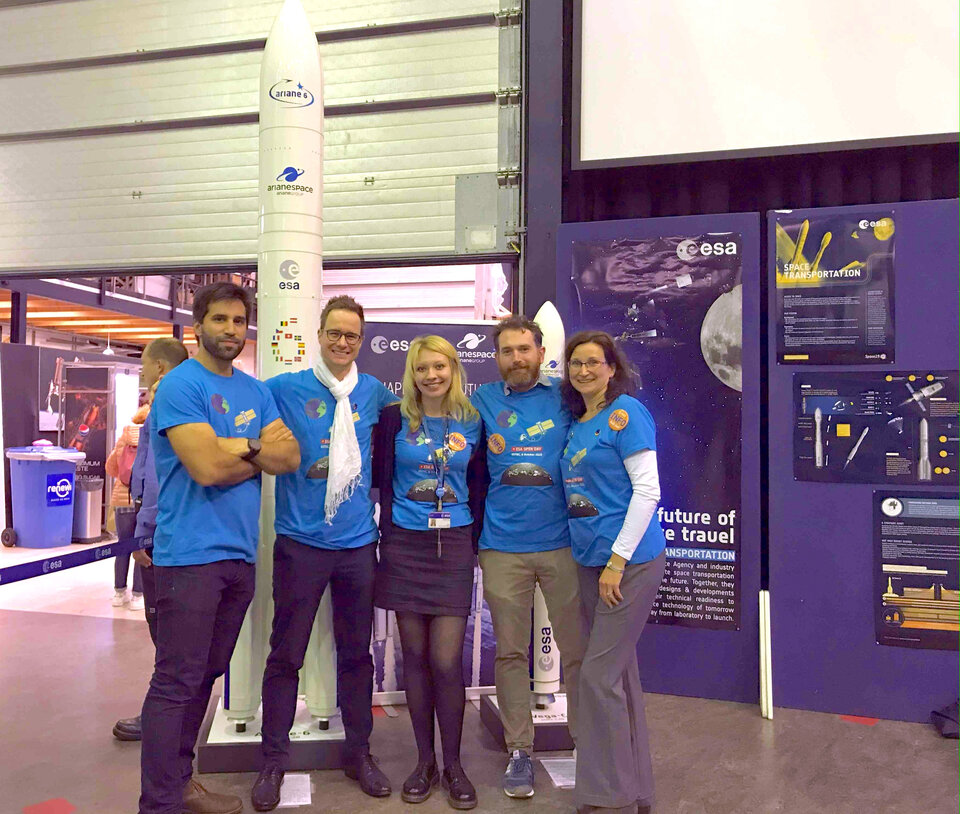
"As part of outreach, Ariane 5 was also an important part of ESA Open days. This was a chance to get together with some of my STS colleagues from HQ. Our stand had rocket models, posters, brochures and quizzes for kids. It was great fun to create the stand and meet the enthusiastic public."
"Ariane 5 is an incredible feat of engineering and I’m very proud to have been part of the team helping the public to follow and understand its evolution.
"I never missed a launch in all the time I worked for Space Transportation. I have moved on from STS but am still keen to watch our European launchers lift off. The final Ariane 5 launch, for me, marked the end of an era."
Ariane 5 had 117 successful launches and placed 239 satellites in orbit. The heavy launcher carried prominent payloads, such as ESA’s comet-chasing Rosetta mission, a dozen Galileo navigation satellites, the James Webb Space Telescope and recently Juice, the explorer of Jupiter and its icy moons.















 Germany
Germany
 Austria
Austria
 Belgium
Belgium
 Denmark
Denmark
 Spain
Spain
 Estonia
Estonia
 Finland
Finland
 France
France
 Greece
Greece
 Hungary
Hungary
 Ireland
Ireland
 Italy
Italy
 Luxembourg
Luxembourg
 Norway
Norway
 The Netherlands
The Netherlands
 Poland
Poland
 Portugal
Portugal
 Czechia
Czechia
 Romania
Romania
 United Kingdom
United Kingdom
 Slovenia
Slovenia
 Sweden
Sweden
 Switzerland
Switzerland

























